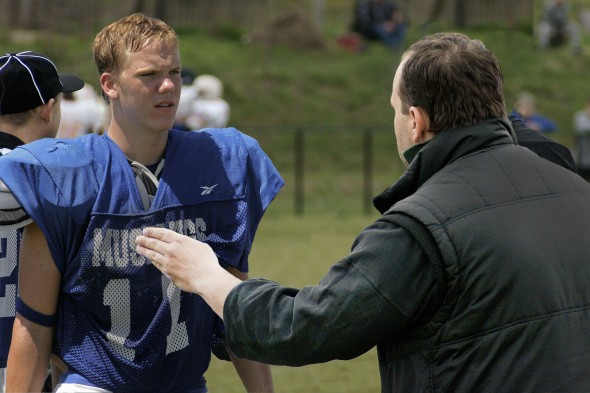Student athletes more willing to cheat if coaches abusive

The survey of almost 20,000 student athletes found that players with ethical coaches were more satisfied with their college choice.
College athletes are more likely to cheat to win if they have verbally abusive coaches, according to a new study by a UIC researcher.
“Coaches are one of the leading people to set rules and the climate on the team,” said Mariya Yukhymenko, visiting research specialist in UIC’s Learning Sciences Research Institute who led the study.
“Athletes spend a lot of time with their coach, probably more than their parents.”
The study was based on responses from by almost 20,000 student-athletes at more than 600 colleges. They answered the questions as part of a National Collegiate Athletic Association quadrennial survey in 2010.
The survey found that players with ethical coaches were more satisfied with their college choice and perceived the climate on their team as more inclusive. The associations between ethical, nonabusive leadership and positive outcomes were greater than the link between abusive coaching behavior and players’ willingness to cheat.
The researchers found that male athletes were more likely to cheat than women. Male football, basketball and baseball players at large universities in NCAA Division I reported the highest willingness to cheat for victory.
Student-athletes are under great pressure to succeed not only on the playing field, but in the classroom, Yukhymenko said.
“Coaches are one of the leading people to set rules and the climate on the team.”
“Many student athletes in Division I schools are looking to go into professional sports after graduation,” she said. “They spend lots of time practicing and competing, but also are likely to spend as much as the general student body doing homework, going to classes, taking exams and making sure their academic performance stays on top in order to maintain their eligibility.”
The researchers recommend that colleges and athletic departments offer training and development to coaching staffs to stress the importance of ethical leadership and define abusive coaching and its consequences.
The study, “The Relationship Between Ethical and Abusive Coaching Behaviors and Student-Athlete Well-Being,” was released online last month and will appear in the American Psychological Association journal Sport, Exercise, and Performance Psychology.
Yukhymenko completed a similar study, funded by an NCAA research grant, as part of her dissertation in educational psychology at the University of Connecticut.
In the Learning Science Research Institute, she conducts quantitative and qualitative analyses as a member of the multi-institutional assessment team for Project READi, funded by the U.S. Department of Education to study text comprehension of middle and high school students.
